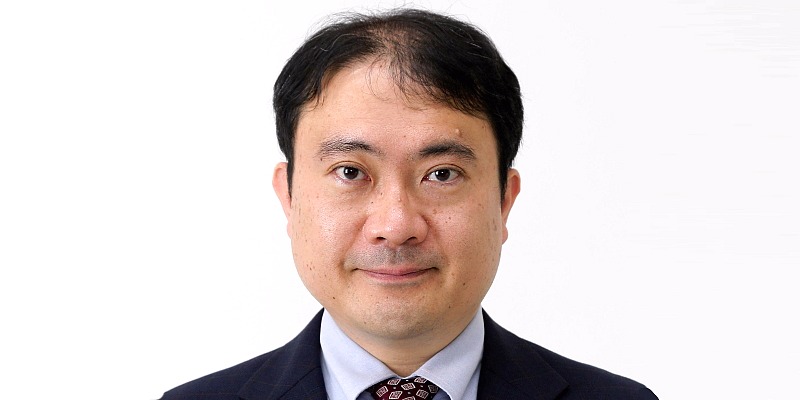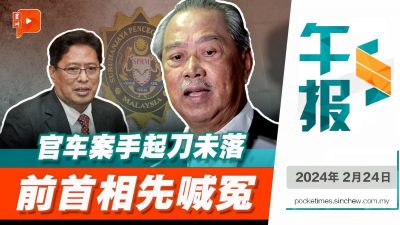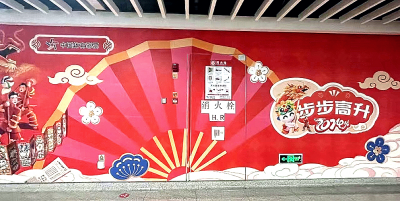
I would like to begin by commenting on the fatal shooting of former Prime Minister Shinzo Abe on July 8, just days before the Upper House election.
In a democracy, elections are fought with votes, not violence.
The basic rules of democracy include accepting the results of an election regardless of whether the outcome is in your favour, and protecting an opponent’s right to free speech even if you dislike the individual concerned.
However, there has been a notable trend around the world to violate the basic rules of democracy, including the use of power to stifle the voice of political opponents and the use of violence to resist election results, as exemplified by the former US president Donald Trump.
There is concern that the incident will lead to this trend becoming more widespread in Japan.
We must avoid allowing this to seriously undermine the rules underpinning Japan’s democracy. We must defend democracy so that in 20 or 30 years, historians do not look back on this event as a precursor to the collapse of Japan’s democratic system.
In the Upper House election, the Liberal Democratic Party (LDP) won 63 seats and Komeito won 13 seats. This brings the total number of seats held by the ruling party to 76 seats. Along with the 70 uncontested seats, this amounted to 146 seats, securing for the party a majority of the total 248 seats.
The LDP alone won a majority of the 124 contested seats.
As for the opposition parties, the Constitutional Democratic Party of Japan (CDPJ) lost 17 seats, a significant decrease from the previous number of 23 seats, while the Japan Innovation Party (JIP) won 12 seats, a significant increase from the previous number of six seats.
The implications of these results for the Kishida administration are as follows.
Barring a dissolution of the Lower House, there will be no national election following this Upper House election until the fall of 2025.
Since the Upper House election was a decisive victory for the ruling party, the LDP presidential election scheduled for next year is likely to see Prime Minister Fumio Kishida re-elected.
In other words, having won the Upper House election this time, the Kishida administration will remain safely in power for the next three years.
The victory has cleared the path for a “golden three years” for Prime Minister Kishida. As a result, all eyes will be on what the Kishida administration has in store for this time and whether the prime minister is able to show what he is made of.
If the Kishida administration can develop policies that appeal to the public, it is likely to stay in power for a long time.
I will now consider the future of the Kishida administration in terms of the following issues around which the latest election was fought.
The first issue is economic and price measures.
The Kishida administration has proposed a “New Form of Capitalism” and the “Doubling Asset-based Incomes Plan.”
However, the details of these policies are unclear and it remains to be seen what new policies will be introduced after the election, and whether these can be differentiated from Abenomics.
The issue of rising energy prices and the increasing cost of other commodities must also be addressed.
In this regard, both the ruling and opposition parties supported an increase in fiscal spending. However, there is a lack of clarity around the government’s revenue resources.
Also, no party has presented a clear fiscal consolidation plan. A fiscal consolidation plan is needed as government debt continues to mount amidst Japan’s declining birth rate and ageing population.
Moreover, with the Bank of Japan’s quantitative easing policy drawing to a close, an exit strategy needs to be devised for both the fiscal consolidation plan and quantitative easing.
This is another issue facing the Kishida administration after the election.
The second issue is diplomacy and security policy.
In addition to mounting threats from China and North Korea, the Ukraine crisis has prompted the Kishida administration to push hard for increasing defence budget.
Meanwhile, the CDPJ, which had not prioritised security policy, now emphasised the improvement of defence capabilities in the Upper House election.
This is an unprecedented development. It seems likely that defence budget will rise, though by how much is unclear.
The third issue is medical, social security and child policies.
The Kishida administration increased the budget in response to the establishment of the Agency for Children and Families, while Komeito proposed free medical care for high school students.
As stated above, however, there is the problem of revenue sources.
The first of the remaining issues is diversity.
Realising a system of optional separate surnames for married couples is essential to achieving this goal.
While the LDP did not mention optional separate surnames for married couples in its campaign pledge, this was part of the platform of the CDPJ, Komeito and the Japanese Communist Party (JCP).
Although strong opposition from LDP conservatives may make it difficult to make headway on diversity-related policies, the Kishida administration will be expected to take diversity initiatives in light of Japan’s extremely low Global Gender Gap index.
In this regard, the ratio of female candidates in the Upper House election surpassed 30%, an all-time high. Of the candidates elected, 35 were women, accounting for 28% of the total elected candidates.
The Japanese government has set a goal of increasing the proportion of women running for office in national elections to 35% by 2025.
The result of the Upper House election has the potential to serve as a catalyst for the increase in the number of female politicians.
Many will also be focusing on the course of the proposed constitutional amendment.
The LDP had pledged to implement the constitutional amendment swiftly. In this Upper House election, the so-called pro-amendment forces (LDP, Komeito, JIP, and Democratic Party for the People) received more than the two-thirds of the Upper House seats required for constitutional amendment to be proposed.
However, it is unclear whether constitutional amendment is a priority for Prime Minister Kishida.
It may be that amidst more pressing issues such as rising prices and the Ukraine crisis, constitutional amendment is assigned a lesser priority. This may be due in part to the death of former Prime Minister Abe, who was an ardent supporter of constitutional amendment.
The direction it takes cannot be anticipated at the present time. However, while former Prime Minister Abe’s death may slow down the momentum of constitutional amendment, it may strengthen the unity of pro-amendment forces.
(Yu Uchiyama is Professor at the University of Tokyo, Japan.)
ADVERTISEMENT
ADVERTISEMENT








































